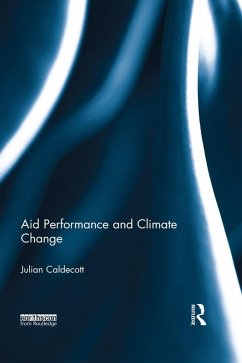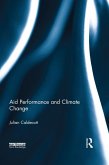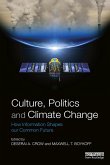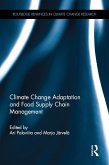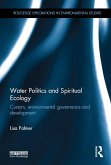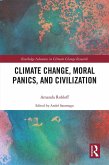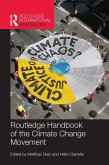Constraints to be overcome include limited understanding of the very complex systems that aid investments affect, and of the ecology behind climate change adaptation and mitigation. Aid Performance and Climate Change targets these problems and others, by explaining how to use multiple points of view to describe each aid investment as a complex system in its own unique context. With examples throughout, it reviews cases, ideas, and options for mitigation using technology and ecology, and for adaptation by preserving resilience and diversity, while exploring related priorities, treaties, and opportunities.
Combining an empirical, eye-witness approach with methodological conclusions, this book is an essential resource for those looking to improve aid design and evaluation, and will be a necessary tool in training the next generation of aid professionals to respond to the causes and consequences of climate change.
Dieser Download kann aus rechtlichen Gründen nur mit Rechnungsadresse in A, B, BG, CY, CZ, D, DK, EW, E, FIN, F, GR, HR, H, IRL, I, LT, L, LR, M, NL, PL, P, R, S, SLO, SK ausgeliefert werden.

